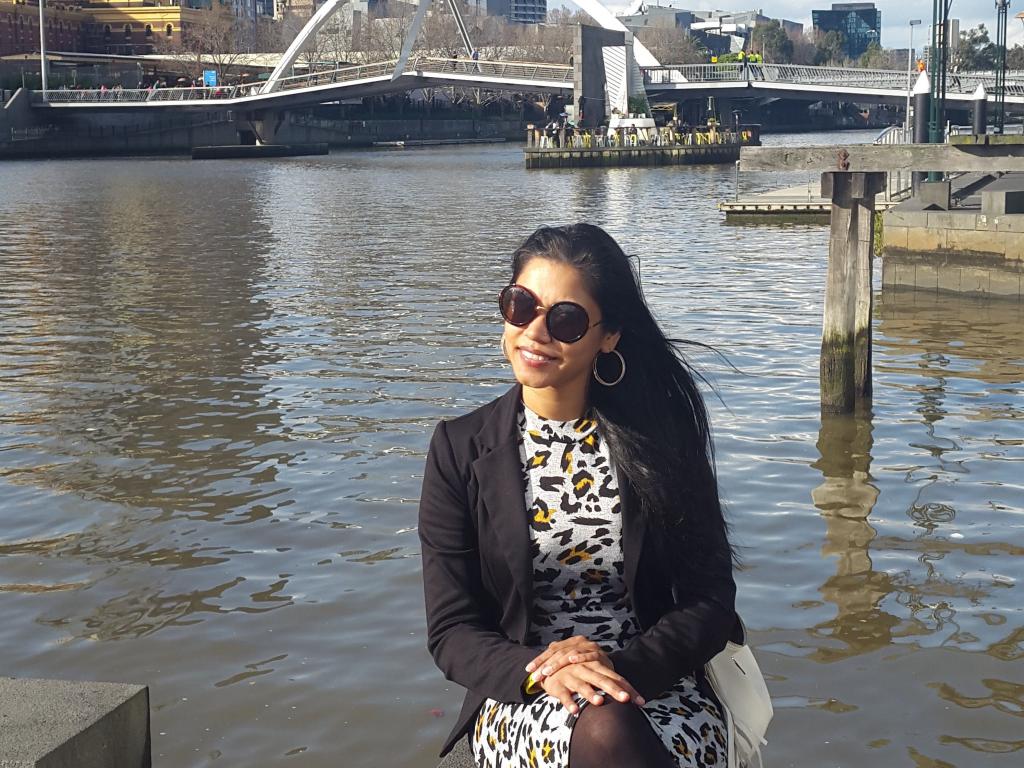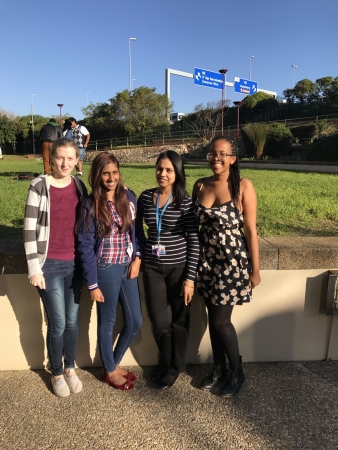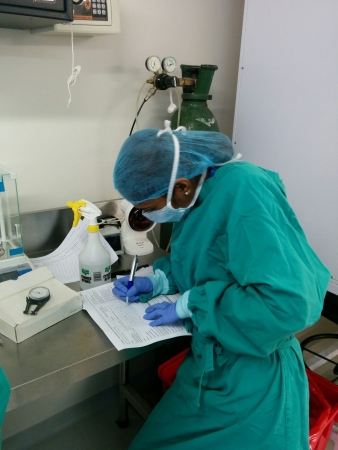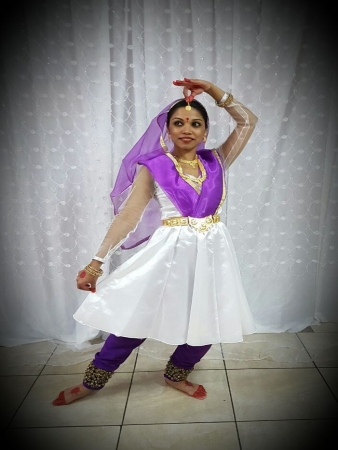Celebrating women in Science at UCT


Raymona with a team of fellow female researchers
Main Research Interests:
Dr Ramona Hurdayal, a lecturer in the Department of Molecular & Cell Biology is passionate about being a scientist and making a difference in the world.
In her research she focuses on human leishmaniasis, which is a neglected tropical disease caused by protozoan parasites of the Leishmania genus. Parasites are transmitted by infected female sandflies, causing an annual incidence of 2 million cases, with 350 million people at risk of infection. There is no effective vaccine and current therapeutic strategies are unable to achieve a sterile cure. The aim of her research is to identify host mechanisms that mediate protection or susceptibility to disease in an attempt to identify new host-directed therapeutic strategies. To investigate this in the laboratory, she uses mouse models of human leishmaniasis followed by a range of molecular, cellular, biochemical and immunological analyses.
How does Raymona's research affect the average South African and the future of the country?
Raymone comments, "I think we should not consider South Africa in isolation. Collectively, we are Africans and the research that we and others alike do, affect Africa as a whole. Human leishmaniasis is not endemic in SA thus, we do not have a current health plan to treat an epidemic. But it is highly endemic in our neighboring countries. With the recent armed conflict, BRICS trade agreements, travel and identification of sandflies responsible for transmission of this disease in Botswana, it suggests that transmission to SA in the future is not completely impossible. Thus, my objective is to build awareness of this disease in SA, contribute to understanding the complex host-pathogen interactions such that Africa as whole would be better equipped to manage the disease"

Raymona at work in the lab
When did Raymona first know she wanted to be a scientist?
She says being a scientist was from the onset, when she was first introduced to molecular technology relating to biology in her third year of undergraduate studies. But the decision to further her BSc was born while sitting at her BSc graduation and realising that this was not the end for her as she want to do more…
What does Raymona think is the biggest misconception that people have about science (or scientists)?
Raymona answers, "People often think we are boring, studious-type of people. A great many do not understand what a scientists’ job actually is. How many children at school say, “I want to be a scientist when I grow up?”. Not many. So I think this is the biggest misconception."
Some more questions and answers from Raymona about her life when she is not doing research:
What is your proudest moment in life?
The expression on my mum’s face at my all of my graduations, especially my Ph.D graduation. I am the first one in my family to achieve a higher-education qualification.
Tell us a random fact that most people would not know about you.
I am currently training in Kathak, which is a classical dance-form of Northern India, a very disciplined but elegant art. I have two more levels to complete before I graduate as a Kathak dancer.

Raymona enjoying her dancing
What advice would you have for your 18-year-old self?
The only difference between dreams and reality, is desire.
Embrace change, success and failure, and be prepared to do things you like and don’t like as you grow older. It’s called “adulting”
What is your current favourite song, book or movie/series?
Song: The Chainsmokers, “Something just like this…”
If you weren't doing science, what do you think you would be doing?
I would probably be in the performing arts, as a dancer or an actress
